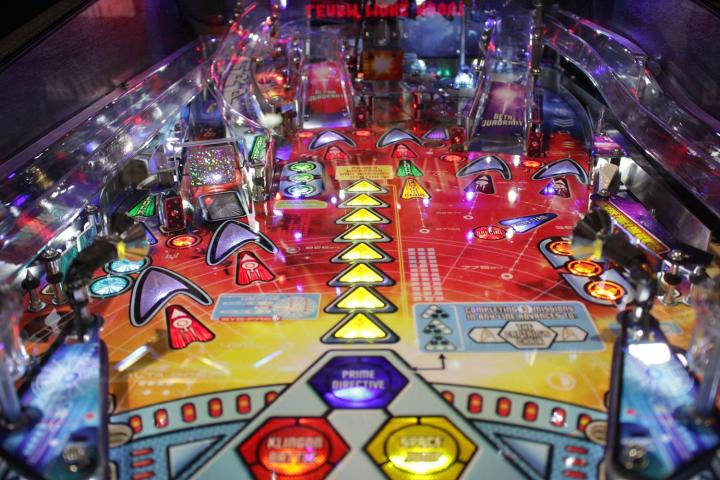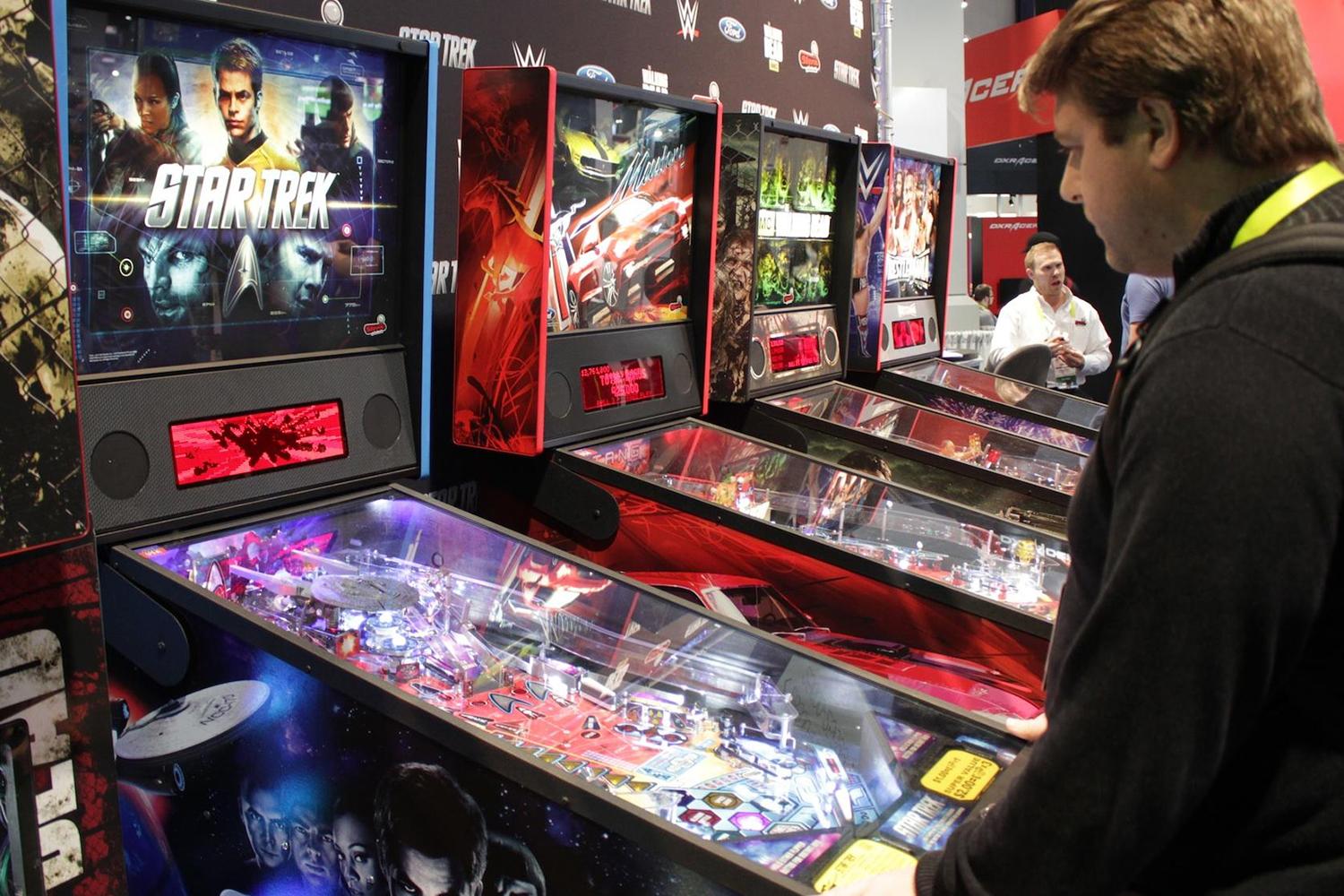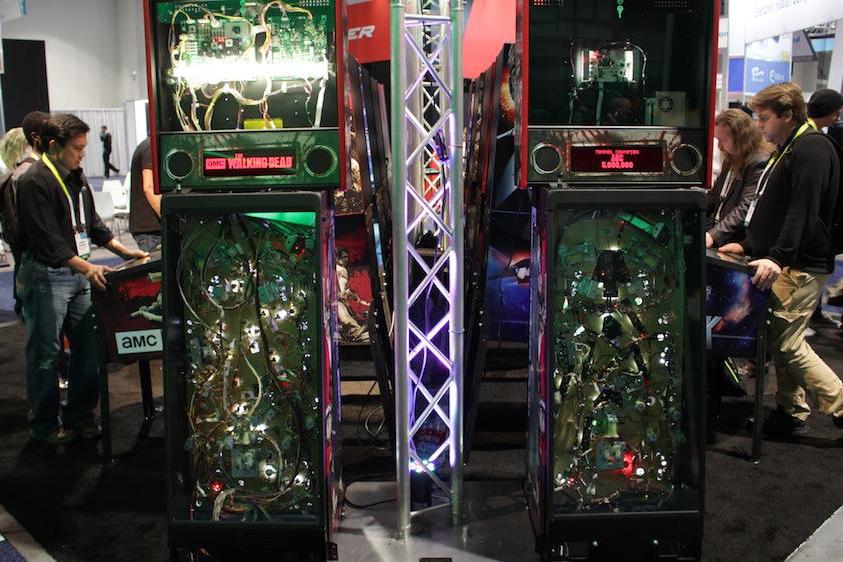
Smack in the middle of CES’s designated Video Games section, surrounded by all manner of virtual reality startups and next-gen gaming peripherals, the most crowded spot on the floor was a bank of eight blinking pinball machines.
“It’s easy to learn but hard to master, which makes it appealing to players of virtually any skill level.”
Turns out, that’s a pretty decent metaphor for the current state of pinball as a whole. It’s easy to assume that the game is dying off, and failing to stay relevant against a rising tide of more advanced games, but in reality it’s doing just fine.
In a lot of ways, Pinball is like film photography or vinyl records — it took a hit when newer, more advanced versions of the same idea (video games) became prevalent, but is now enjoying a bit of a resurgence in popularity. According to Gary Stern, CEO and Chairman of Stern Pinball Inc. (the oldest and largest pinball manufacturer in the biz — and one of the only pinball companies to survive past the 2000’s) profits have more than tripled since 2009, and continue to grow year after year. Playership is also up. The International Flipper Pinball Association, the main league for worldwide competitive pinball, has grown from 500 to 23,000 registered players in the past eight years.
Pinball isn’t just surviving; it’s thriving.
Why? It’s hard to say — at least in any succinct and easily-digestible way. After talking with Stern, it seems the game has endured partially because of its own inherent virtues, and partially because of companies like Stern Pinball, which have remained agile and adapted to the ever-changing landscape of gaming over the years.
A large part of its longevity boils down to this: Pinball is a game for everybody. “It’s easy to learn but hard to master,” says Stern, “which makes it appealing to players of virtually any skill level. There’s skill involved in the game, and you can get deep into the strategy to become more advanced as a player, but at the same time, it’s still very approachable and fun for the casual player.” At the end of the day, you don’t have to be a pro pinballer to pull a plunger and hit the flappers.
The old-school, analog randomness of a pinball machine also provides some appeal beside more predictable digital games. “It’s a real mechanical action game,” say Stern. “That’s the thing about all these computer games; they’re all predetermined to a certain degree. Pinball is a ball-and-bat game — it’s tennis, it’s baseball, it’s golf. The ball is a randomizer. The ball is wild. It’s more unpredictable than any computer program you could ever write.”
“We’re having a resurgence, but are we ever going back to the level we were at during the heyday of pinball? Probably not.”
You can’t objectively link these attributes to the comeback pinball is experiencing, but subjectively, they definitely feel like contributing factors. Pinball is just as fun and approachable as it’s ever been, and as I stood there talking with Stern on the show floor — surrounded by all the craziest video game tech in the world — no pinball machine remained unoccupied for longer than a few seconds. The game clearly hasn’t lost its luster.
But undying interest in pinball isn’t the only thing that’s been keeping it alive. An equally large part of why the game hasn’t died out entirely seems to be because of a handful of nimble companies like Stern that have adapted over the years to keep pinball from dropping off of the map.
To stay the front of the pack, Stern has streamlined its business in just about every way possible. For starters, it’s built a new control system for all of its upcoming pinball machines (called Spike) that’s more reliable, more customizable, and more efficient — but also cheaper to produce, and drastically easier to maintain. This has ultimately helped Stern cut costs and boost profitability, while simultaneously helping the game evolve.
Stern Pinball also does a lot more PR and outreach nowadays — partially just to let people know they’re still around, and partially to expose pinball to new players. The gaming landscape has become far more competitive and crowded in the past couple decades, so pinball needs more evangelists than it used to.
“We’re having a resurgence,” Stern says, “but are we ever going back to the level we were at in the 90’s, during the heyday of pinball? Probably not. You’ve got to remember that back then, there was no Internet, no on-demand on your TV, no Netflix — there weren’t so many things competing for your attention.”
“That’s why we’re here talking to people like you,” he explains. “We’re here to promote pinball, because life would exist without pinball, but a little bit of the fabric of life would be gone if pinball didn’t exist.”






